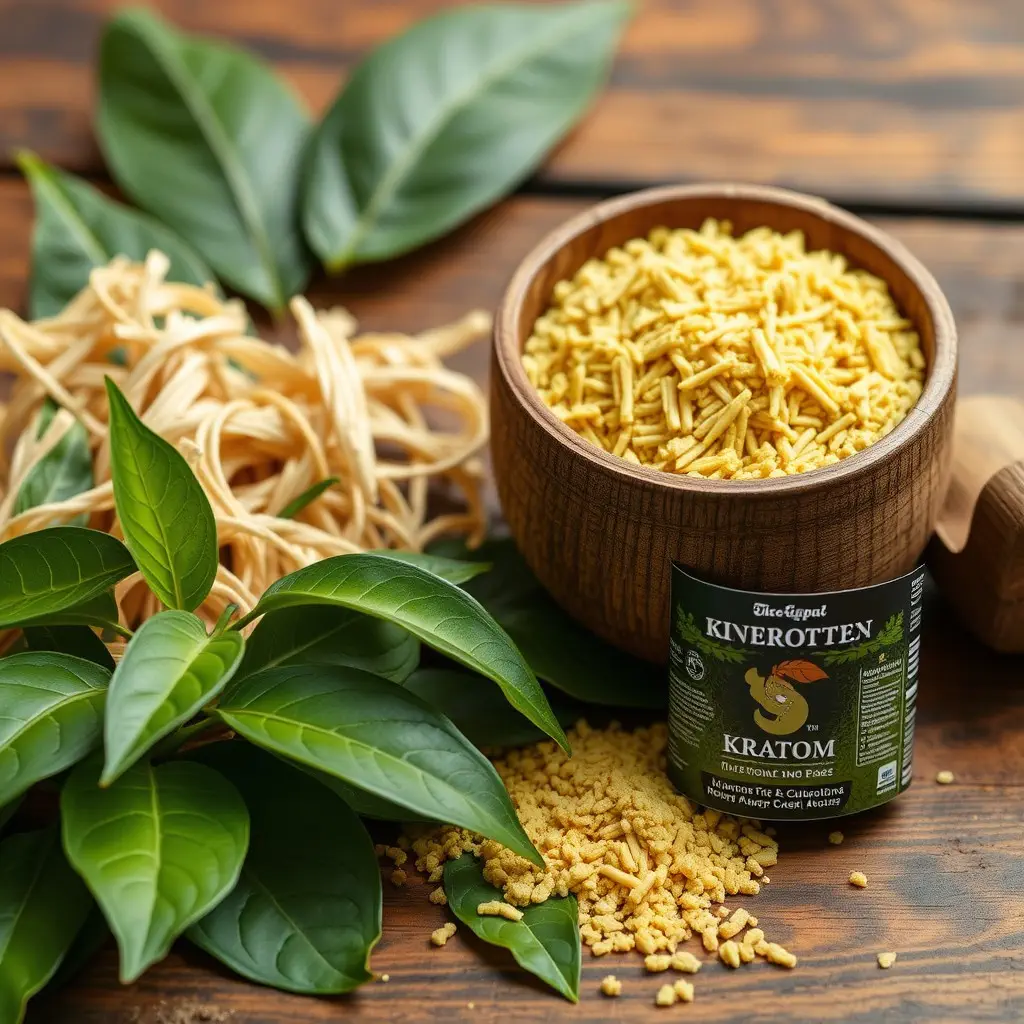Muscle soreness, particularly delayed onset muscle soreness (DOMS), can result from intense physical activity and is associated with inflammation and muscular damage. Kratom, a natural remedy derived from the kratom tree, has been explored for its potential to alleviate this soreness due to its active alkaloids, mitragynine and 7-hydroxymitragynine, which engage with opioid receptors to provide analgesic effects and may offer anti-inflammatory benefits. However, the use of kratom is under scrutiny due to its complex legal status, potential side effects, and concerns about dependence and abuse. In the military context, there are queries about whether the Army tests for kratom, given the physical demands of service members and the need for effective pain management. The Defense Department's stance on kratom is a topic of ongoing research and debate within the armed forces. Soldiers might consider kratom as a natural alternative to traditional pain medications, but its use must be approached with caution due to its influence on cognitive and physical performance, leading to testing policies within the military. The legal and ethical implications of kratom's use necessitate informed decision-making, especially for professionals like military personnel, who are subject to drug testing and must maintain operational readiness. Individuals should stay updated on the evolving legal landscape and scientific research surrounding kratom to ensure they are in compliance with policies and aware of its implications for muscle recovery and pain management.
Muscle soreness can be a persistent challenge for individuals engaging in physical activity, from casual fitness enthusiasts to professional athletes. When exploring natural remedies, kratom has emerged as a potential supplement for alleviating muscle pain. This article delves into the mechanisms by which kratom may offer relief and addresses safety considerations, including the relevant policies within military forces such as the Army—a sector where rigorous testing for substances is a standard procedure, as evidenced by searches like “does the army test for kratom.” We aim to provide a comprehensive overview of kratom’s role in muscle soreness relief strategies, ensuring ethical use and informed decision-making.
- Understanding Muscle Soreness and Kratom's Role in Relief
- Kratom as a Supplement for Muscle Soreness: Mechanisms of Action
- Safety Considerations, Army Testing Policies, and Ethical Use of Kratom
Understanding Muscle Soreness and Kratom's Role in Relief

Muscle soreness, a common occurrence after intense physical activity or exercise, can range from mild discomfort to debilitating pain, affecting individuals from athletes to sedentary workers experiencing a new routine. The underlying mechanisms of muscle soreness, often referred to as delayed onset muscle soreness (DOMS), involve inflammatory responses and muscular damage due to eccentric contractions or overexertion. Understanding the nature of muscle soreness is crucial for implementing effective relief strategies. Kratom, a tropical evergreen tree native to Southeast Asia, has garnered attention for its potential role in alleviating such discomfort. Mitragynine and 7-hydroxymitragynine, two key alkaloids found in kratom leaves, are thought to interact with the body’s opioid receptors, offering analgesic effects that may help in managing pain levels. These compounds could provide a natural alternative to traditional pain relievers for those experiencing muscle soreness. Additionally, some anecdotal evidence suggests that kratom may also possess anti-inflammatory properties, which could further contribute to its potential in mitigating the symptoms of muscle soreness. While the use of kratom supplements is a subject of ongoing research and discussion within various communities, including those within the military, such as does the army test for kratom, it’s important to approach the use of kratom with caution and proper guidance from healthcare professionals due to its potential side effects and regulatory status. Users considering kratom as part of their muscle soreness relief strategy should be fully informed about the legal implications and safety considerations associated with its consumption.
Kratom as a Supplement for Muscle Soreness: Mechanisms of Action

Kratom, a supplement derived from the leaves of the Mitragyna speciosa tree, has garnered attention for its potential impact on muscle soreness and pain relief. The mechanisms by which kratom may alleviate muscle discomfort are multifaceted and involve several biological systems. Kratom contains alkaloids such as mitragynine and 7-hydroxymitragynine, which interact with the body’s opioid receptors. This interaction can modulate pain signaling pathways, leading to a reduction in the perception of muscle soreness. Additionally, kratom may influence the release of neurotransmitters like dopamine and serotonin, contributing to an overall sense of well-being and potentially enhancing recovery between workouts or physical activities.
In the context of military use, there has been interest in whether the army tests for kratom. The rigorous nature of military training can lead to significant muscle fatigue and soreness, making effective relief strategies critical. While specific testing protocols vary, the Defense Department’s stance on kratom, as well as its inclusion in their drug testing panels, is an area of ongoing discussion and research. Soldiers often seek natural alternatives to manage pain without the side effects associated with traditional pharmaceuticals. Kratom’s potential for aiding muscle recovery and pain management makes it a subject of interest within military circles, prompting careful consideration of its legal status and implications for service members.
Safety Considerations, Army Testing Policies, and Ethical Use of Kratom

When integrating kratom into muscle soreness relief strategies, it’s imperative to approach its use with caution due to its regulatory status and potential side effects. The safety considerations surrounding kratom are significant, as its active compounds, mitragynine and 7-hydroxymitragynine, can have both opioid-like and stimulant effects. These effects may lead to physical dependence or abuse, which necessitates careful consideration before adopting it as a regular part of pain management. The U.S. Army has established testing policies that address the use of kratom among its personnel, recognizing the substance’s potential to impair cognitive and physical performance and the need for maintaining operational readiness. These policies reflect broader ethical considerations regarding the use of substances that could compromise an individual’s health and duty. Ethically, the use of kratom should be approached with a sense of responsibility and awareness of its legal standing and scientific understanding, which is still evolving. It’s crucial to stay informed about the current status of kratom legality and research findings, as laws and regulations can change, and new information may influence its acceptance and use in various contexts, including professional environments like the military.
Muscle soreness can be a persistent challenge for individuals engaging in rigorous physical activities. The exploration of kratom as a supplement for managing such discomfort reveals its potential mechanisms of action, offering a natural alternative to traditional pain relief options. While the scientific community continues to study kratom’s effects, it is imperative to approach its use with caution, especially considering the interest in does the army test for kratom, as reflected in their testing policies. Safety remains paramount when incorporating kratom into any health regimen, and ethical use is a cornerstone of responsible supplementation. As future research unfolds, understanding the nuances of kratom’s role in muscle soreness relief will be crucial for those seeking alternatives to conventional treatments.






